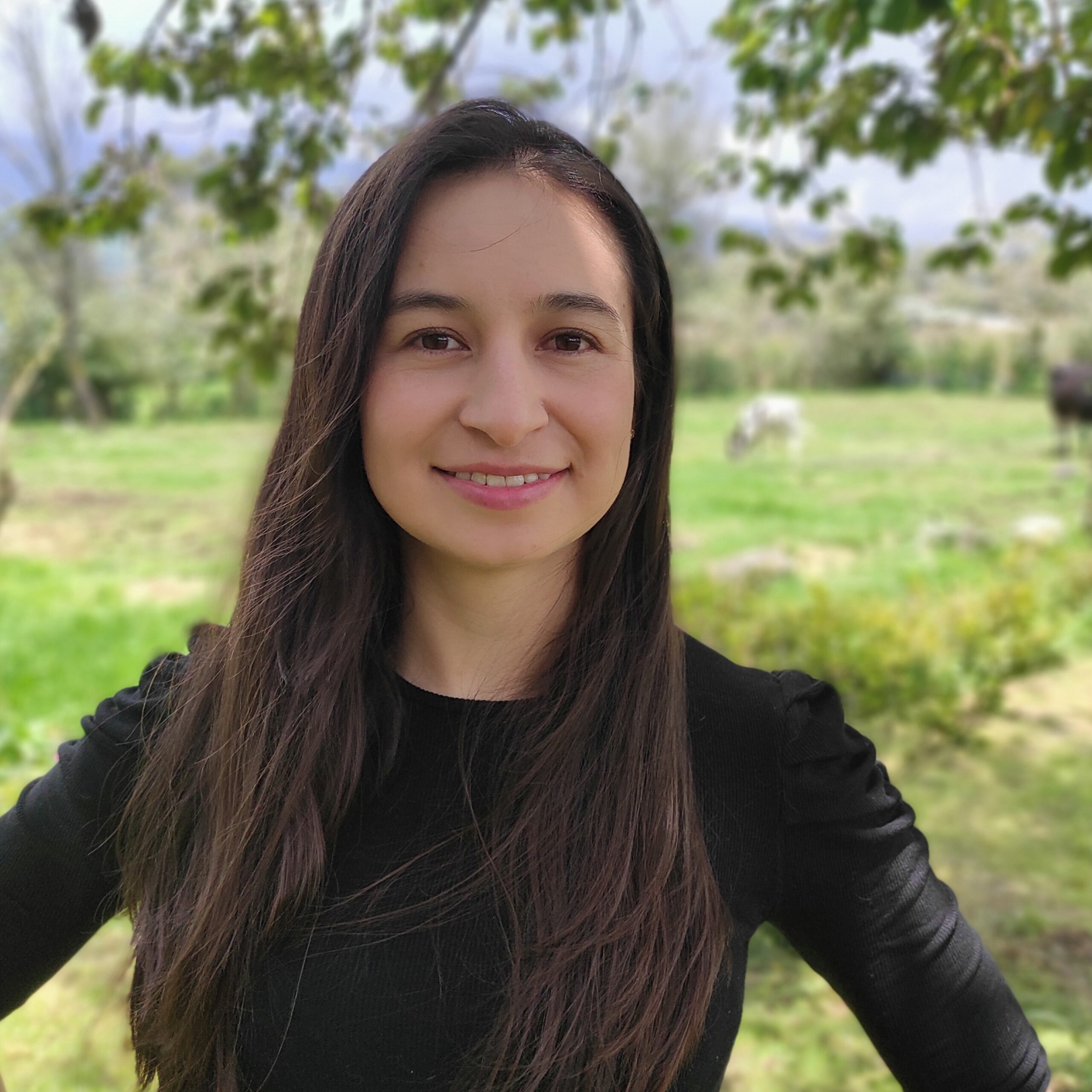Born in Quito, Ecuador • Studied Mathematical Engineering at Escuela Politécnica Nacional in Quito, Ecuador • Highest Degree M.Sc. in Mathematical Optimization • Lives in Quito, Ecuador • Occupation Teaching assistant and Ph.D. student
My math story started with questions, as many other math stories, I suppose. In the early years of high school, math exercises were fun and challenging. I enjoyed solving them, but I never thought I would study math as a career years later. By that time, I wanted to become an engineer, like my dad, and hopefully work at a hydroelectric power plant. But somehow, math was like gravity, and I felt more and more drawn to it. Hence, I decided to study math at Escuela Politécnica Nacional in Ecuador at the end of high school. Looking back on it, I think I was lucky. Pursuing a career in math was not common in Ecuador. I had the support of my parents and I also was encouraged by my math teacher. However, I had no idea of what math was really about.
I enjoyed the vitality of the formal math language, which brings the possibility to precisely describe a deduction process and articulate a definition from an intuitive notion.
I found the early stages of my undergraduate studies challenging and, sometimes, difficult. However, I was amazed and triggered. I enjoyed the vitality of the formal math language, which brings the possibility to precisely describe a deduction process and articulate a definition from an intuitive notion. The beauty of the simplicity and richness of math made me stay. Nevertheless, the inflection point in my math story happened when I started to work as a research assistant in a project at the Research Center for Mathematical Modeling in Ecuador, ModeMat. In this project, I worked on the numerical solution of visco-plastic fluids. These fluids have a dual behavior; they move like a solid or like liquid depending on the stress imposed on them. I found the mathematical formulation of these fluids fantastic. In this process, I learned the fundamental laws underlying fluid dynamics, optimization methods and I improved my coding skills. This was the starting point of a journey that led me through a Master’s program in Mathematical Optimization and then, like the flow of a Newtonian fluid, to the Ph.D. program in Applied Mathematics. Being part of the Research Center, ModeMat, has shaped part of my life. I have grown up there from an undergrad student to a Ph.D. student under the supervision of four great advisers: Pedro, Sergio, Juan Carlos, and Luis Miguel. Their guidance during the Ph.D. has been essential and valuable.
I am confident things are changing. At the moment, in my Ph.D. program, we are more women than men.
Nonetheless, I have realized that every time I was part of an international conference, unconsciously I ended up choosing a woman from the Academy as a role model. This unaware action, years later, made me realize how important visibility is. There were few academic women at the math department while I was an undergrad student; therefore, I had the chance to only have one math woman professor. I am confident things are changing. At the moment, in my Ph.D. program, we are more women than men.
I am in the last year of the Ph.D. This journey has not been like the stream of a calm river. Like a visco-plastic fluid, sometimes I have moved like a solid, slowly and without any change in my progress and, sometimes, one just flows like a liquid in a stream of exquisite results. The chance to write about my story came in an opaque moment of uncertainty and lack of confidence. It took me a while to sit and write it down. However, I have genuinely enjoyed it. This retrospective exercise helped me to reconcile and reconnect. Right now, I am focused on this last year of the Ph.D. and interested in a Postdoc. My thesis is still related to visco-plastic fluids. Therefore, in some sense, I think I kind of accomplished my teenage dream. I am not working at a power plant driven by water but I have a better understanding of the fluid dynamics laws to comprehend the power of water. Finally, I would like to take the final words of Natasha Karp’s math story (which I enjoyed a lot reading) as advice: “Enjoy your journey but don’t expect to know exactly where you are going and keep growing and challenging yourself’’. I think that’s what I will do.



Recent Comments